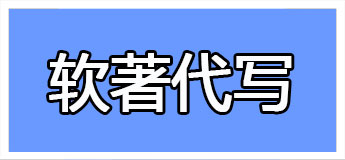
The importance and Benefits of Copyrighting Software - An Informative Article
Software has become an integral part of every aspect of our lives, from communication to entertainment, education, healthcare, and work. The development and distribution of software involve significant investments of time, money, and resources, often by teams of developers, designers, and engineers. As such, it is essential to protect the intellectual property rights of software creators and owners to ensure that they can profit from their efforts and continue to innovate.
Copyrighting software is one of the ways to establish legal ownership and control over its distribution and use. In this article, we will explore the meaning and benefits of software copyright, its legal framework, and practical considerations.
What is Software Copyright?
Copyright is a form of intellectual property that grants exclusive rights to the owner of an original work, such as a book, film, music, or software. Copyright covers the expression of ideas in a tangible medium, not the underlying ideas, procedures, or functionality. Therefore, it applies to the code, design, text, graphics, and other elements of software.
By obtaining copyright protection, the owner can prevent others from copying, distributing, displaying, performing, or modifying the software without permission. If someone infringes on the copyright, the owner can file a lawsuit to seek damages and injunctions to stop the infringement.
The Benefits and importance of Copyrighting Software
Copyrighting software offers several benefits and advantages for both creators and users.
1. Protection of Investment
Software development requires significant investments of time, money, and resources. Copyright protection ensures that the creators and owners can enjoy the fruits of their labor and recover their costs by controlling the distribution and pricing of the software.
2. Incentive for Innovation
Copyright encourages innovation and creativity by providing a legal framework that recognizes the value of original works and rewards their creators. The prospect of exclusive rights and potential profits motivates developers to create new and better software that meets the needs of users.
3. Legal Recourse
Copyright infringement can damage the reputation and revenue of software creators and owners. Copyright protection enables them to take legal action to prevent and remedy such violations and recover damages for lost profits or royalties.
4. Trust and Quality Assurance
Copyrighted software provides a level of trust and quality assurance to users by ensuring that it meets standards of safety, functionality, and compatibility. Copyright owners can also provide technical support, updates, and warranties to maintain the value and reliability of their software.
Legal framework for Software Copyright
In the United States, Software is protected by copyright laws under the Copyright Act of 1976. The Act grants copyright protection to \"original works of authorship fixed in any tangible medium of expression, now known or later developed, from which they can be perceived, reproduced, or otherwise communicated, either directly or with the aid of a machine or device.\"
In addition to the Copyright Act, software copyright laws also cover other legal doctrines, such as trade secrets, patents, trademarks, and contracts. Some important considerations for software copyright protection include:
- Registering the copyright with the U.S. Copyright Office to establish legal evidence of ownership and receive additional legal protections and statutory damages.
- Defining the scope of copyright protection, such as the exclusive rights of reproduction, distribution, modification, and performance.
- Determining the fair use and exceptions to copyright, such as research, criticism, and parody.
- Ensuring that the software does not infringe on the intellectual property rights of others, such as patents, trademarks, or trade secrets.
Practical Considerations for Software Copyright Protection
To effectively protect software copyright, creators and owners should take some practical steps:
- Keep track of the development process, including documentation, code, and design elements, and mark any significant milestones or versions.
- Establish clear ownership and usage rights with contractors, employees, or collaborators, and include confidentiality and nondisclosure agreements as needed.
- Monitor the market for potential infringement and take swift action to protect copyrights and prevent damages.
- Draft software licenses and terms of service that specify the permitted uses, restrictions, warranties, and liabilities of the product.
- Educate users and stakeholders about the importance of copyrighting software and respecting intellectual property rights.
Conclusion
Software copyright is a critical aspect of protecting the intellectual property rights of creators and owners of software. By obtaining copyright protection, they can prevent others from copying, distributing, or modifying their software without permission and recover damages for infringement. Moreover, copyrighting software incentivizes innovation, protects investment, provides legal recourse, and ensures trust and quality assurance for users. Creators and owners should carefully consider the legal and practical aspects of software copyright protection to protect their assets and preserve their value.
上一篇:南京办理软件著作权认证([南京]软件著作权认证:全面解读)下一篇:南京软件著作权在哪申请(南京软件著作权在哪申请?)
软件著作权说明书代写
一、《申请表》《说明书》《源代码》3个文档
二、300元/案子,3天内交付
三、电话/微信:139-9853-9835




